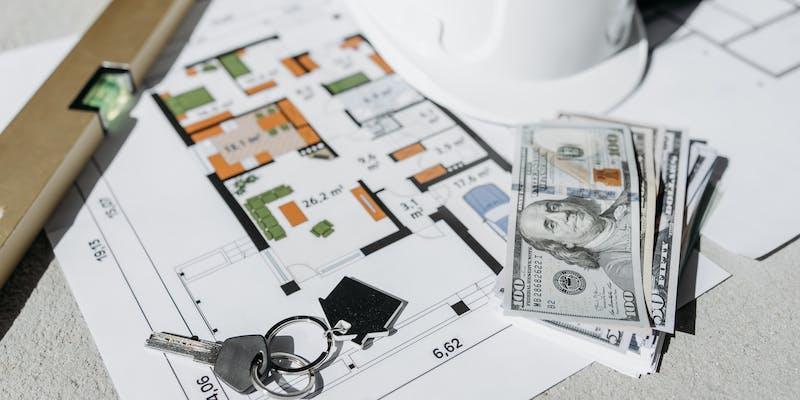After two years of high home sales and soaring prices, the real estate housing market slowed last summer and is now at a halt. This move is primarily due to rising mortgage interest rates. Interest rates rose in March 2022 when the 30-year fixed rate topped 4%. It reached a 20-year high of 7% in October and has spent 2023 at the mid-6% level. Higher mortgage rates and a steep reduction in buyer demand have lowered property prices. After two years of record sales, might the housing market be about to crash?
According to experts, homebuyer demand will rise in the next five years. They also note warning indicators of future problems. Let's explore further.
Housing Market Dynamics
The Federal Reserve Bank of Dallas, in December 2022, discovered symptoms of a U.S. housing bubble. The paper noted the rise in property prices but focused on other issues such as disposable income, loan costs and accessibility, supply interruptions, and rising labor and building material costs. These factors support actual house-price growth.
The Dallas Fed paper states that when people believe in solid price gains, the housing market becomes separated from these fundamentals. Buyers' "fear of missing out" might boost prices and raise expectations of high house-price growth. According to experts, the U.S. housing market is not a bubble. He highlights that real bubbles experience speculation-driven price increases, credit expansion, and busts. Kiefer credits recent house price gains to record-low mortgage rates and a structural shift in housing demand, not speculation or credit growth.
Analysts also say that while house prices may decline, it doesn't always mean a "bubble pop" or a "crash." He stresses the need to identify market fluctuations from bubble bursts, indicating that they are part of the market cycle.
Challenges for Housing Market

As the housing market struggles, numerous variables might make this housing market 2023 tough. High mortgage rates, rising property values, declining buyer demand, and a recession complicate the housing market.
Record-low affordability and the highest mortgage rates since the early 2000s discourage purchasers. They are either priced out of the market or hesitant owing to affordability worries and home-price anxiety. Homeowners who bought their homes in the previous two years at record-low mortgage rates are unlikely to relocate soon, complicating matters. This unwillingness to sell strains inventories and complicates home market dynamics.
These variables indicate a cautious and challenging housing market in the future year. As the real estate business evolves, prospective buyers, sellers, and industry watchers actively monitor these trends.
Impacts of Recession on Housing Market
According to NBER economists, a recession is a lengthy period of considerable and widespread economic downturn. Two consecutive quarters of GDP decline, rising inflation, and a manufacturing and trade sales slowdown are vital indicators of an economic downturn.
The U.S. has a healthy job market with a 3.5% unemployment rate, growing earnings, and resilient consumer spending despite the most significant inflation in 40 years. However, many predict a 2023 recession, which may restrict consumer spending as firms cut investments and employment.
Homebuying Trend Impact
The housing market is changing 28% of March 2023 purchases were made by first-time homebuyers, down from 30% a year earlier. The looming recession may dissuade first-time buyers, reducing transaction volume.
Some housing analysts expect homebuyer demand to rise, but warning flags exist. The housing sector faces high mortgage rates, inflated property values, low buyer demand, and a recession. Record-low affordability and inventory strain from ultra-low mortgage rates keeping homeowners put add complication. Nevertheless, many analysts expect a U.S. housing market crash in 2023. They expect consumers to curtail spending as firms cut investments and employment. Some experts expect a minor recession. The home market will still be affected, they believe.
Note that first-time homebuyers, who boosted the housing market in previous years, are declining. According to the NAR, first-time homebuyers made 28% of March 2023 purchases, down from 30% a year earlier. A recession would scare first-time buyers even more, lowering transaction volume.
Strategies for Home Buyers

Today's property market presents a dilemma for homebuyers. New house construction will be insufficient even though housing prices are expected to slow in the coming months. Owners must make tough decisions as the market changes.
Affordability Outside Cities
Moving from pricey cities to cheaper ones may help people acquire something quickly. This modification addresses the scarcity of homes for sale and the possibility that demand could grow again, making housing prices unaffordable for many. The market is less competitive than early this year but challenging. This allows purchasers to enter without much competition and negotiate a discount.
Planning to Buy a House
Thoughtful planning might help someone become a homeowner later if they're not ready to buy. You should save more, enhance your credit score, and look at communities that suit your tastes. But trying to predict the market's lowest mortgage rates is risky. Experts advise potential buyers to check their credit ratings, improve them, and save for a down payment. Borrower education initiatives like CreditSmart from Freddie Mac may help customers make prudent homeownership decisions.
People who wish to buy a home must analyze their alternatives, consider the market, and prepare for their future property aspirations. As the real estate market evolves, buyers must adapt and look ahead.
Prediction for Housing Market Recession
Many want to know if the real estate housing market will fall or if prices will plummet. Professionals predict no market meltdown is imminent. Several factors explain this stability. There are few residences for sale or "low inventory." More dwellings should be created, worsening the housing deficit. The market is robust due to new sellers and rigorous credit conditions. Home lending conditions are more challenging than before the 2008 financial crisis.
Most individuals think house prices won't decline or won't drop much. Prices dropped briefly in early 2023 but immediately rose and established new records. Experts like Bankrate's senior financial analyst Greg McBride expect prices to plateau rather than decline. Some expect the market to increase. Home prices are predicted to climb 6.5% by July 2024, demonstrating the market's stability despite uncommon fluctuations.



